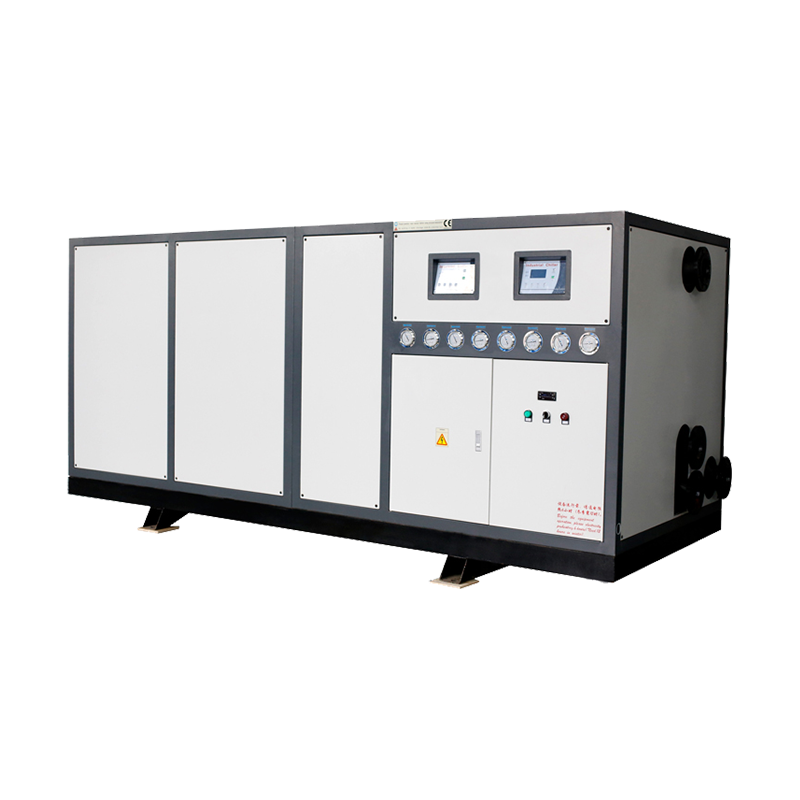Water chillers are devices that are used to cool water for various industrial or commercial applications. They work by removing heat from the water through a process of refrigeration, using a refrigerant to absorb heat and transfer it away from the water.
Water chillers come in various sizes and types, depending on the specific application. Some common types of water chillers include air-cooled chillers, which use ambient air to remove heat from the refrigerant, and water-cooled chillers, which use water to remove heat from the refrigerant.
Water chillers are widely used in various industries, such as manufacturing, food and beverage, pharmaceuticals, and data centers, for their ability to cool water to precise temperatures, which can be critical for many industrial processes. For example, they can be used to cool industrial machinery or equipment, cool products or ingredients during the manufacturing process, or provide air conditioning in large commercial buildings.
There are several advantages of using water chillers in various industrial and commercial applications. Some of the key advantages include:
Energy efficiency: Water chillers are generally designed to be highly energy-efficient, which can help to reduce overall energy costs and environmental impact. They can be used to provide cooling for large industrial equipment or buildings, which can require a significant amount of energy, and the use of an energy-efficient water chiller can help to minimize energy usage and costs.
Precise temperature control: Water chillers can be used to cool water to precise temperatures, which is critical for many industrial processes. This precision can help to ensure the quality and consistency of products or processes, which can be important in industries such as food and beverage or pharmaceuticals.
Reduced maintenance and downtime: Water chillers are typically designed to be highly reliable and require minimal maintenance. This can help to reduce downtime and maintenance costs, which can be critical in industries where downtime can be costly.
Increased lifespan of equipment: Water chillers can be used to cool industrial equipment and machinery, which can help to extend the lifespan of the equipment. Cooling the equipment can help to prevent overheating and other issues that can lead to premature equipment failure, which can be costly and disruptive.
Reduced environmental impact: The use of water chillers can help to reduce the environmental impact of industrial processes. For example, using water chillers can help to reduce the amount of energy required to cool industrial equipment or buildings, which can help to reduce greenhouse gas emissions and other environmental impacts.


Introduction
LSW-series water-cooled chillers is popular for large cooling capacity project,. Equipped with pump tanks, high efficiency Scroll compressors, tandem and dual circuit configurations, stainless steel plate evaporator and condensers as well as shell and tube heat exchangers are available, thermostatic expansion valves, filter dryers and sight glasses. Portable chillers are fully packaged and can be converted to a central system. Chillers come packaged with insulated pumps and tanks with level sight glass. Options include: water regulating pressure control, various pump configurations, water makeup, oversized pumps and reservoirs, and potable water isolation heat exchanger systems.

 English
English Español
Español










